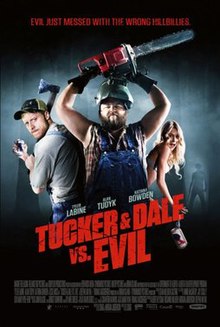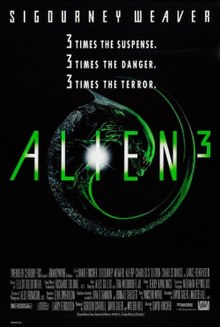I discovered something about my approach to writing years ago. I'm far more excited by a different take on an old approach than I am on a new work. Bester's The Demolished Man is good: a detective story that is a vehicle to examine a world where telepathists are common. However, I prefer his The Stars My Destination, a retelling of the Count of Monte Christo in SF form. New takes on old material happen all the time. Frank Miller's The Dark Knight Returns is one example. One of my favorite's is Red Son, where Superman landed in the Ukraine rather than Kansas.
A subset of this sort of approach is what I call a reversal: where the work is an opposite or close to opposite take on an established approach. What makes a reversal a little different is it's based on the reader/viewer having actual knowledge of the previous approach. The effect of the work depends on the reader's foreknowledge of the previous approach. E.T. is a reversals of a sort in that the audience has to understand the earlier approach of Bug Eyed Monsters towards extraterrestrials to get the countertype of the alien as oppressed person.
Enter Tucker and Dale versus Evil.
Think on the old evil hillbilly story. It goes back to Deliverance if not farther. College kids go out into the woods only to be horribly dismembered and killed by demented country folk. In TAD, the hillbillies are complete innocents. Oh, the college students get horribly dismembered and killed alright. But they do it in the process of thinking they're defending themselves from demented country folk. Tucker and Dale are just there for the ride. It's a terribly funny film. Though it's not surprising that you'd find a reversal in a comedy. After all, reversals are the stuff of parody and parody is one of the wonderful approaches to comedy.
Enter Alien.
I'm going to proceed as if the reader here has seen the films. If not, the entire franchise is discussed here.
There are four real Alien films: Prometheus, Alien, Aliens and Alien-3. The film that follows Alien-3 is interesting but doesn't really fit in the set. This particular order is the order of time of events within the world of the film. The order of production is also interesting: Alien, Aliens, Alien-3,
Like Star Wars, the order of production of putting the prequel(s) later gives the production the ability to take advantage of the viewers foreknowledge. There are two reversals. On in Alien-3 and one in Prometheus.
In Alien, the crew of the ship Nostromo are directed to a world where the aliens live. One gets inside of a crewman, gestates and kills him. The rest of film is the crew trying to save itself by killing the alien. All fail and die until Ripley finally succeed. The alien is too much for everybody else. In point of fact it is almost too much for Ripley and it is through luck, brains and ability that she is able to kill the alien and save herself.
Aliens opens when Ripley is discovered decades later and awakened from hypersleep. Over the course of Aliens an entire squad of bad-ass marines are sent to take care of a colony that has succumbed to the aliens. They largely fail. It's clear in Alien that the alien is more than a match for unprepared humans either singly or in groups. In Aliens it's clear that the alien is more than a match for prepared humans, either singly or in groups. Ripley, a single marine and a little girl are all that is left of the expedition.
The message is clear: humans and their technology are no match for the aliens.
Alien-3 opens when Ripley's returning vessel is compromised and crash lands on a prison planet. There is nothing on this planet: no weapons, no tools, no sophistication. Just a bunch of hard criminals and their hands and brains.
Yet in this environment the alien is actually defeated and it and its seed destroyed. It costs nearly every human their lives. But the humans out of pride and rage place their bets down on themselves and take it on. This is the reversal against the previous material. Man's technology and sophistication is no match for the alien. His will, determination and self-sacrifice is.
Enter Prometheus.
Prometheus is a prequel. It takes place before Alien. Several years before. All of the little bits are present. There's an android of mysterious motivations-- just like Ash in Alien and Bishop in Aliens and Alien-3. The corporate sponsor is the same. Since the films are already out there the prequel has the ability to just plant a flag in the ground and say look at this: these people don't know what's about to happen. In the previous alien films there's a hidden dark knowledge that the corporation knows about the aliens and is just trying to get them. But in Prometheus is does not. The corporate presence is there but it's motivation cannot be the same.
Prometheus suggests that the aliens were built with a specific purpose in mind: destroy humanity. Humanity is, itself, the creation of a humanoid race propagating itself. Reversal #1: the creation of humans by the gods is merely a bright reflection of the dark procreation of the aliens using humans to propagate themselves. Reversal #2: the gods (the humanoid creators) have devised the aliens to wipe out humanity. They who have created us have decided we are not worthy of life and must be destroyed.
Now we, the viewers, can see how this relates to subsequent films. Characters within the film, of course, do not know this. They have to figure things out on their own. In Star Wars, Anakin does not know he will be destroyed, turned evil and redeemed. But we do.
No one on the ship Prometheus returns to tell the tale. But those that remain behind are left with the knowledge that fueled the expedition to begin with. It is this left behind knowledge, imperfect and incorrect as it is, that informs the rest of the alien films. At the end of Prometheus the main character leaves the planet and goes to confront the gods. The cost of finding this knowledge out is not transmitted back to humanity. Humanity (the corporation) is left only with the knowledge that there is something out there worthy of being found.
Artistic viewpoints are malleable. We cannot read Shakespeare de novo. It has become part of our culture. We cannot consider Tarzan, John Carter, Huckleberry Finn, Macbeth, Catch-22 or World War II as did those first participants. To them it was a new thing. But that thing has warped our understanding into a new shape.
Subsequent artistic treatments change change the lens through which we view the original material whether we know it or not, whether we want it to or not.






No comments:
Post a Comment